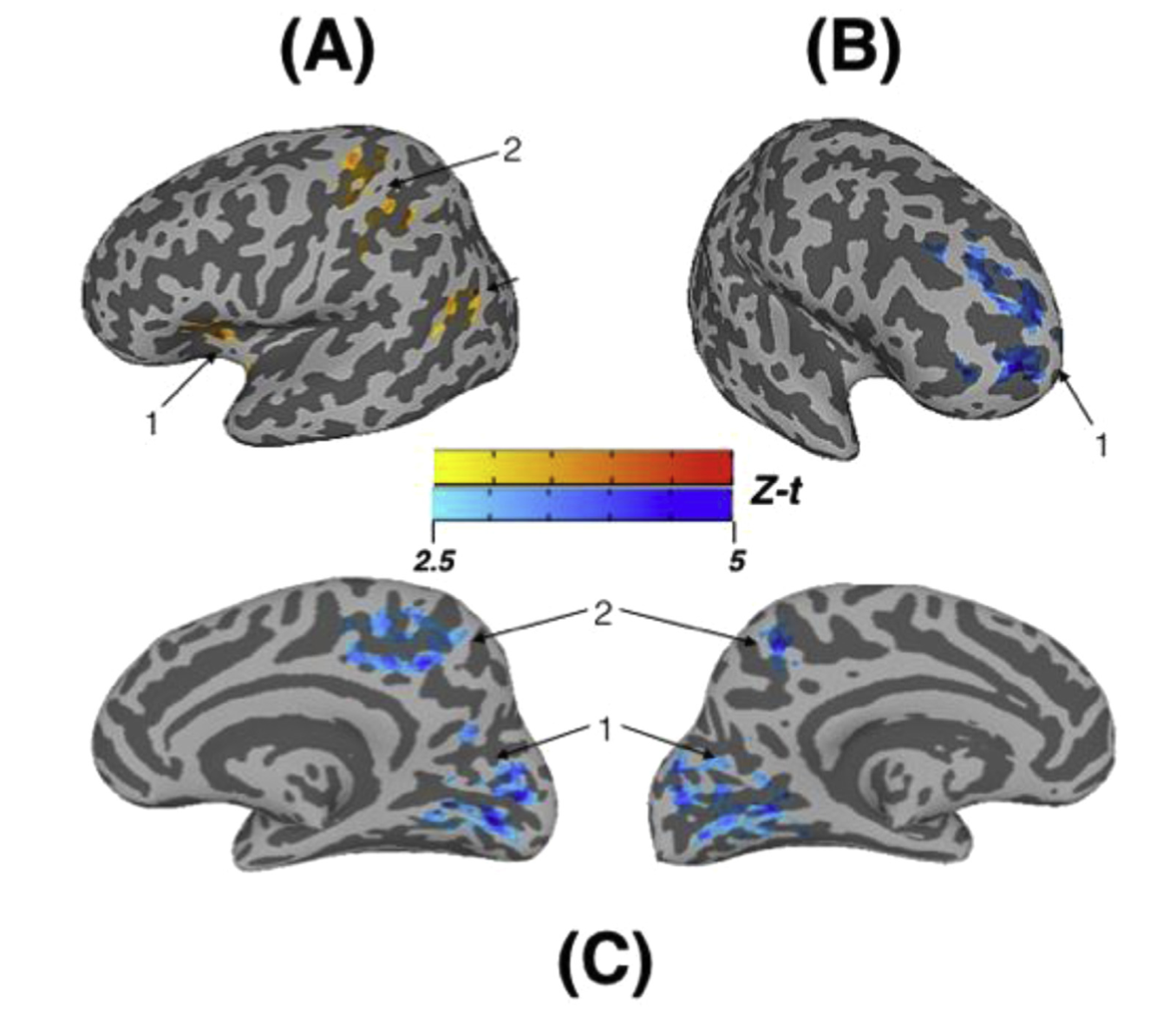Abstract
Despite the fact that inspirational stimuli (e.g., analogies) have been shown to be an effective means to assist designers, little is known about the neurological processes supporting inspired design ideation. To explore the impact of inspirational stimuli on design ideation, an fMRI concept generation task was developed (N = 21). Results demonstrate that inspirational stimuli of any kind (near or far from the problem space) improve the fluency of idea generation. Furthermore, neuroimaging data help to uncover two distinct brain activation networks based upon reasoning with and without inspirational stimuli. We term these inspired internal search and unsuccessful external search. These brain activation networks give insight into differences between ideating with and without inspirational stimuli, and between inspirational stimuli of varying distances.
